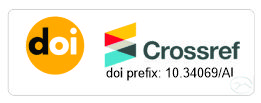Número actualVol 14, No 86 (2025)
Publicado October 29, 2025
Descripción de la publicación
El volumen 14, número 86 de Amazonia Investiga presenta una edición interdisciplinaria que aborda problemáticas actuales en los campos del derecho, la educación, la tecnología, la salud, la creatividad y la traducción. Los artículos analizan temas relevantes para la sociedad contemporánea, como la ética en la gestión empresarial, el liderazgo estratégico impulsado por la inteligencia artificial y su impacto en el capital intelectual, así como los factores que influyen en la intención de aprendizaje continuo en entornos virtuales. También se examina la efectividad de la enseñanza basada en juegos para fortalecer las habilidades matemáticas en estudiantes con dificultades de aprendizaje y se presentan investigaciones sobre plantas descubiertas en Costa Rica entre ... Más
Tabla de contenidos
Articles
Articles
Desafíos de género en la atención de salud, estrategias psicológicas para superar la discriminación
Articles
Percepciones y el uso de IAGen en profesores universitarios de matemáticas desde Campos Conceptuales

Amazonia Investiga es una revista científica de acceso abierto, con revisión por pares y modelo de publicación continua, que cuenta con un enfoque multidisciplinario. Publica investigaciones originales en áreas como educación, derecho, políticas públicas, tecnología aplicada y ciencias sociales. La revista tiene como propósito promover la reflexión crítica y la transformación social mediante contribuciones académicas rigurosas. La mayoría de los artículos se publica en inglés, con algunas publicaciones en español y portugués. Todos los manuscritos son evaluados mediante un proceso de revisión por pares doble ciego, y el equipo editorial está comprometido con mantener altos estándares de integridad académica y visibilidad internacional.

















































































